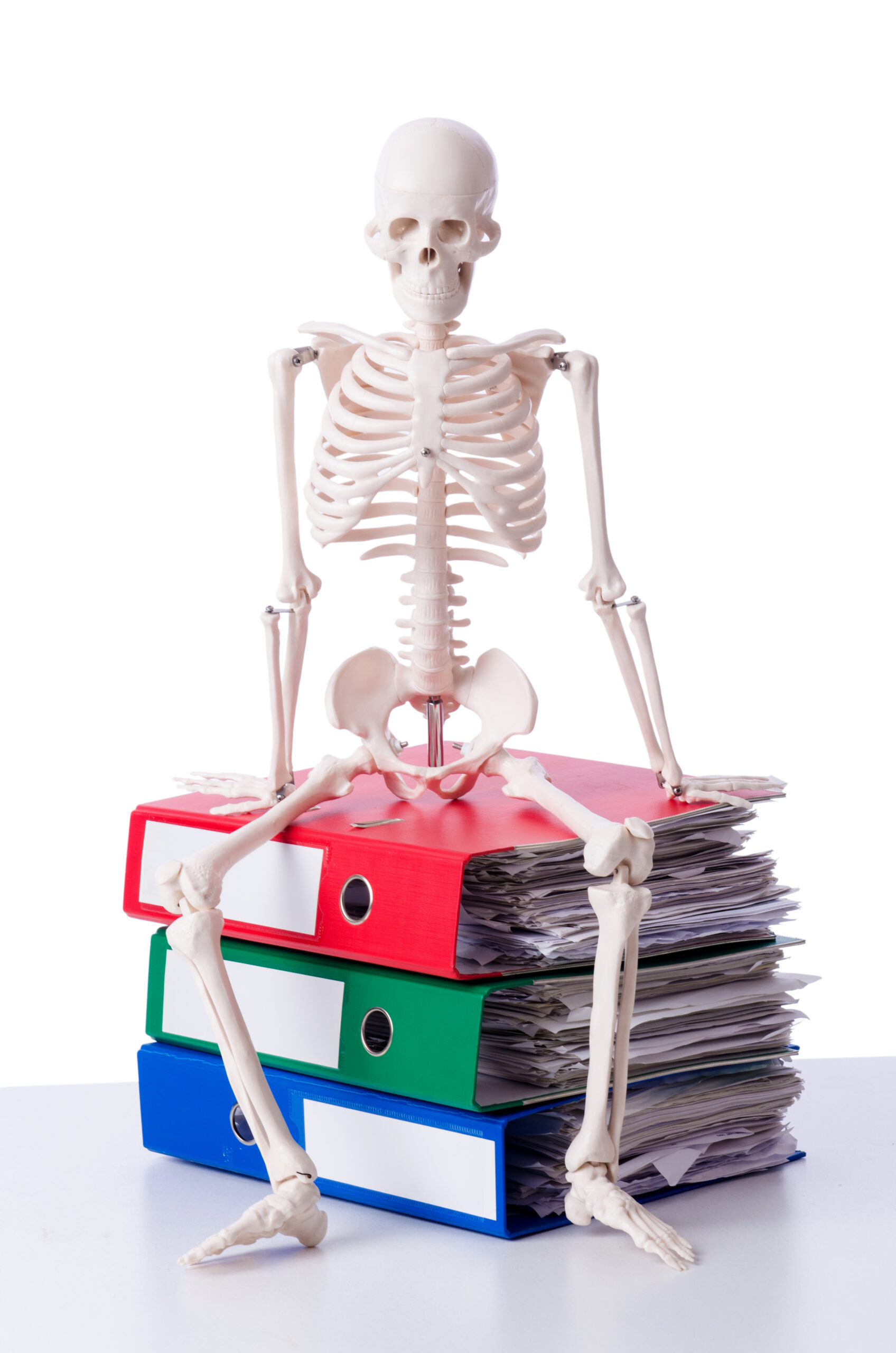Okay, I know that this isn’t the most uplifting title to a blog post but I feel it is an important one. I have experienced a number of situations where sadly clients have passed away and due to a lack of organization it has been incredibly difficult to help their loved ones organize their estate after their passing.
What is an ‘In case of death folder’?
An ‘In case of death folder’ is a physical or digital folder that an individual or family keeps that contains important information that will be needed in the event that someone dies or becomes incapacitated. The folder, which is sometimes referred to as an ‘In case of death folder’ or ‘When I’m dead’ folder, serves an important, but often overlooked role in estate planning.
It will enable you and your family to keep a record of virtually every aspect of your life, so that if you cannot deal with things yourself, someone else can take over and help you out.
The difference between having your files organized or not is about more than just stress; leave behind a mess and it can delay inheritors’ access to funds and cause potentially high legal fees.
The vast majority of us have people that we either care a lot about, are taking care of, or both. In such cases, what we do with our affairs and how we get things organized can help those people in the event we unexpectedly pass. Of course, in the long run, this isn’t unexpected but a certainty.
Here are some things you should consider organizing and placing in your ‘In case of death folder’
Your Will -Instead of leaving distribution to other people or rules you may or may not agree to, probably the most important thing is your Will and where it is located. You can also direct your benefciaries to the contact details of the executors of your Will.
Insurance Policies -In the event of death, life insurance proceeds could be there to help out specifically designated beneficiaries. It’s a good idea to keep insurance information handy to facilitate the proper handling of such matters during a difficult time.
Pension policies – Are your beneficiaries entitled to your pension? Leave behind statements with policy numbers and contact details so that they may organize any payments due quickly and efficiently.
NB: Pensions and insurance plans have many different payout rules, so you need to leave behind detailed information about policies and /or the contact details of your financial adviser.
Contact details of relevant persons –Include contact numbers of important contacts such as your lawyer/solictor, the executors of your Will and your financial adviser. These people are also likely to hold important records.
Possessions – Do you have any family heirlooms or valuable items anywhere, such as jewelry, either within your property or in a safety deposit box. Make a note of where these items can be found.
Funeral arrangements – If you have made any prior arrangements notify your loved ones where these may be found so they may carry out your wishes.
Bank account details – Leave details on all bank accounts you hold, including account numbers and sort codes etc. If you have any other policies with the post office, ISA’s or premium bonds it is a good idea to include these as well.
Investments – Any important paperwork providing information on investments should be filed. If your financial adviser holds these, again provide them with their contact details.
Any important documents such as your passport, birth certificate and marriage certificate should be kept together so they may be easly found.
Computer passwords – It may be necessary for your loved ones to access information held on your computer. To save time and hassle let them know your login and password details.
Consider creating a “map” that would lead others on the path to finding your documents/possessions so they know what it is they are looking for and where exactly to find it.
Start the list by going through all the places you keep the important papers and list the location and contents. For example “In the back of my top dresser drawer are the insurance policies and my living will.”
None of us know how long we are going to live for. But if you are to die or were otherwise incapacitated, would your loved ones be able to quickly locate your important information or know how to handle your affairs?
Many of us have a great handle on our finances, but our record keeping systems might not be obvious to family members or friends who might need immediate access to them in times of emergency.
When creating an ‘In case of death folder’ this should be done as accurately as possible. It is really important to keep it up-to-date (record the most recent date of any changes).
Imperative is telling someone you trust, where to find it. A good suggestion is that you keep your Wills, Powers of Attorney, Letter of Wishes etc together with this document, all in one place.
Let your loved ones know where to find your file and you will be safe in the knowledge that everything can be taken care of and avoid any undue stress.
Find out how we can help you
If you would like to understand more about this topic get in touch
Related posts
- Published On: January 20, 2022|4.9 min read|
How to Use Life Insurance to Mitigate Inheritance Tax
If your total combined assets including your life insurance exceed the inheritance tax threshold, your beneficiaries will have to pay the inheritance tax due before they are able to gain access to your estate. The life insurance, alongside other assets, will also need to go through probate, which can take months, if not longer to complete. Luckily, there are ways to mitigate this.
Read more













